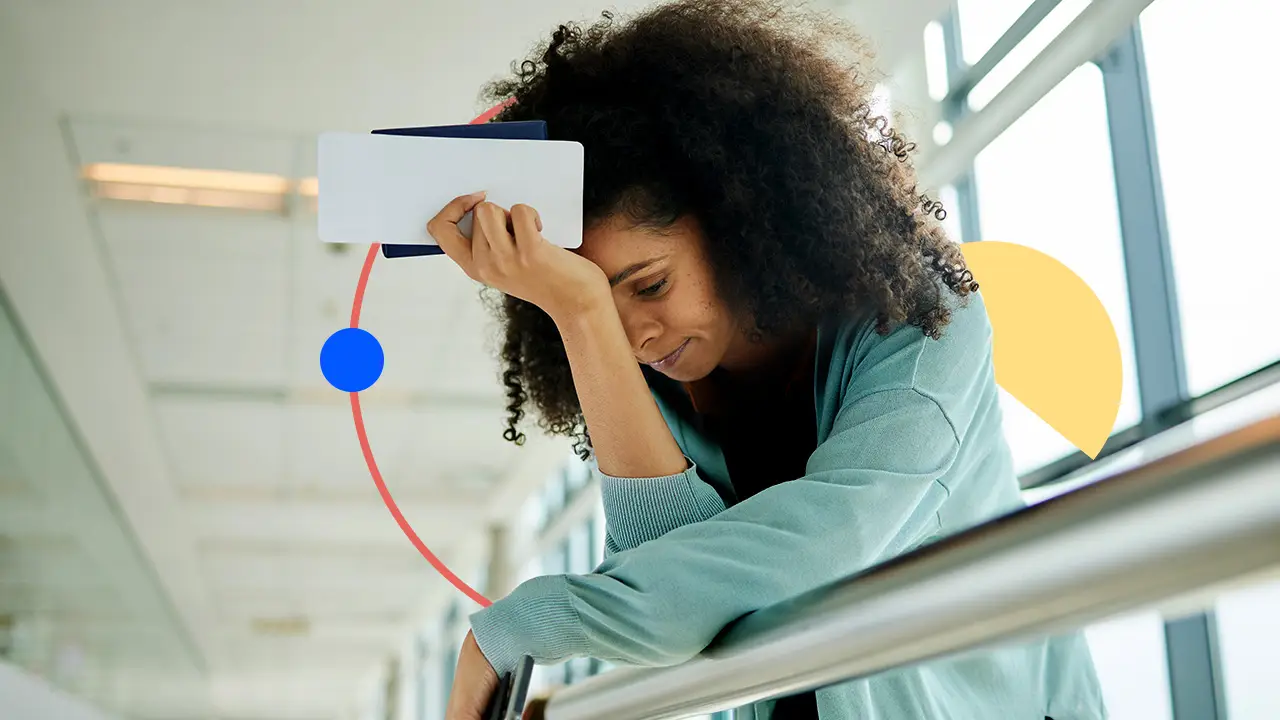Ever had the dreaded moment of waiting at the baggage carousel only to see your suitcase vanish into thin air? Losing luggage can ruin a trip. Here are eight comprehensive tips to help prevent that from happening.

1. Tag, Tag, and Tag Again: The Importance of Clear Identification
Clear and Accurate Information: Ensure your luggage tags have your full name, phone number, and email address.
Multiple Tags: Attach tags to both the inside and outside of your bag.
Durable Tags: Use sturdy tags that won’t tear or fade easily.
Why is this important? Clear identification tags are crucial for helping airline staff locate your luggage if it gets lost or misplaced. By providing accurate contact information, you increase the chances of a quick reunion.
2. Unique Identification: Making Your Bag Stand Out
Colorful Luggage: A brightly colored suitcase is easier to spot in a sea of black bags.
Personalize Your Bag: Add a unique sticker, ribbon, or charm to make it stand out.
Luggage Straps: Use colorful luggage straps to further distinguish your bag.
Why is this important? A unique and memorable bag is less likely to be mistaken for another traveler’s luggage. This can help prevent accidental misplacements.
3. Secure Your Bag: Protecting Your Belongings
Lock Your Luggage: A TSA-approved lock can deter thieves and keep your belongings safe.
Avoid Overpacking: Overstuffed bags can be more prone to damage and loss.
Remove Excess Straps: Ensure no straps can get caught in conveyor belts.
Why is this important? Locking your luggage can deter theft and help prevent your belongings from being lost or damaged during transit. Additionally, avoiding overpacking and removing excess straps can reduce the risk of your bag getting caught or damaged.
4. Check Your Bag Wisely: Packing Strategies
Carry-On Essentials: Pack essential items in your carry-on to avoid inconvenience in case your checked luggage is delayed or lost.
Fragile Items: If you’re traveling with fragile items, consider carrying them on.
Why is this important? By packing essential items in your carry-on, you’ll have access to them even if your checked luggage is delayed or lost. This can help minimize the inconvenience and disruption to your trip.
5. Document Everything: Taking Photos for Insurance Purposes
Baggage Claim: Snap a photo of your luggage at the baggage claim counter. This can be helpful if it goes missing.
Contents: Take pictures of the contents of your bag before you check it in. This can assist with insurance claims.
Why is this important? Having photographic evidence of your luggage and its contents can be invaluable if your bag is lost or damaged. This can help expedite insurance claims and ensure you receive appropriate compensation.
6. Travel Insurance: Protecting Your Investment
Protect Your Investment: Consider purchasing travel insurance that covers lost or damaged luggage.
Why is this important? Travel insurance can provide financial protection if your luggage is lost or damaged. It can help cover the costs of replacing your belongings and can provide peace of mind during your trip.
7. Inform the Airline Immediately: Reporting Lost Luggage
Report Lost Luggage: If your bag is missing, report it to the airline immediately.
Provide Details: Be prepared to provide information about your flight, baggage claim ticket, and bag contents.
Why is this important? Reporting lost luggage to the airline promptly is essential for initiating a search and increasing the chances of recovery. Detailed information about your bag can help airline staff identify it more easily.
8. Track Your Luggage: Staying Informed
Airline Tracking: Some airlines offer online tools to track your luggage.
Luggage Tracking Apps: Consider using a luggage tracking app or device.
Why is this important? Tracking your luggage can provide you with real-time updates on its location and help you stay informed about its status. This can reduce stress and anxiety during your trip.
By following these comprehensive tips, you can significantly reduce the risk of your luggage getting lost and enjoy a stress-free travel experience.


